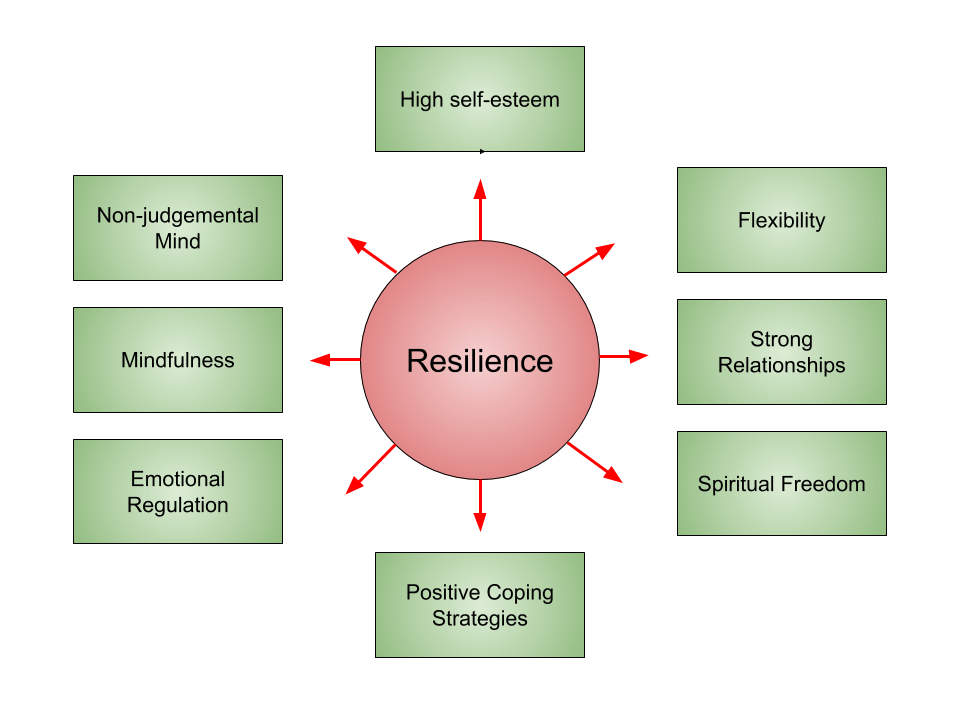In today’s fast-paced and ever-evolving world, it’s easy to feel overwhelmed, stressed, and emotionally drained. The constant demands and pressures from work, relationships, and even the daily news can take a toll on our emotional well-being. But what if there was a way to cultivate emotional resilience and find inner peace amidst the chaos? Enter mindfulness.
Mindfulness is a practice that has gained popularity in recent years for its ability to help individuals manage stress, enhance their emotional well-being, and develop a greater sense of self-awareness. It’s about being fully present in the moment, without judgment or attachment to thoughts, feelings, or external circumstances. It allows us to observe our thoughts and emotions from a distance, providing clarity and a deeper understanding of ourselves.
I personally discovered the power of mindfulness during a particularly challenging period in my life. I was feeling overwhelmed with work deadlines, personal relationships were strained, and I was constantly battling anxiety and self-doubt. It was during this time that I stumbled upon a mindfulness course, and little did I know, it would completely change my life.
The first few days of practicing mindfulness were not easy. My mind was constantly racing, jumping from one thought to another, and I found it incredibly difficult to sit still and observe my thoughts without getting caught up in them. But I persisted, reminding myself that mindfulness is a skill that requires practice and patience.
Slowly and steadily, I began to notice changes in how I responded to stressors. Instead of reacting impulsively or getting carried away by negative emotions, I found myself taking a step back, observing my thoughts, and choosing a more intentional response. This newfound awareness allowed me to break free from the harmful patterns and habits that were holding me back.
One of the most significant benefits I experienced through mindfulness was the cultivation of emotional resilience. Emotional resilience is the ability to adapt and bounce back from adversity, setbacks, and challenging situations. It’s not about suppressing or denying negative emotions but rather acknowledging and working through them in a healthy and constructive way.
Mindfulness provided me with a safe space to explore and process my emotions, both positive and negative. It helped me develop a greater sense of self-compassion and acceptance, allowing me to respond to challenging emotions with kindness and understanding. I learned to be gentle with myself during difficult times and treat myself with the same care I would offer to a dear friend.
Through mindfulness, I learned the importance of self-care and self-reflection. Taking the time to check in with myself, whether through meditation, journaling, or simply unplugging from technology, became non-negotiable. These intentional moments of self-care allowed me to recharge, gain perspective, and make healthier choices for my overall well-being.
Another key component of mindfulness is cultivating gratitude. When we intentionally practice gratitude, we shift our focus from what’s wrong or lacking in our lives to what we have and appreciate. It’s about acknowledging the blessings and small joys that often go unnoticed amidst the chaos of daily life.
Practicing gratitude regularly has been a game-changer for me. It has helped me shift my perspective and find moments of joy even in the most challenging times. Whether I’m expressing gratitude for the support of loved ones, the beauty of nature, or simply being alive, it has allowed me to cultivate a positive mindset and a greater appreciation for life’s simple pleasures.
In addition to my personal experiences, scientific research has also shown the numerous benefits of incorporating mindfulness into our daily lives. Studies have found that regular mindfulness practice can reduce stress, anxiety, and depression, improve attention and cognitive function, enhance empathy and compassion, and strengthen emotional regulation.
If you’re interested in incorporating mindfulness into your life, there are various ways to get started. Mindfulness meditation is a popular practice that involves focusing your attention on your breath, bodily sensations, or a specific object or mantra. This helps anchor your awareness in the present moment and cultivate a non-judgmental attitude towards your thoughts and emotions.
Apps such as Headspace, Calm, and Insight Timer offer guided meditations and mindfulness exercises to help you establish a regular practice. Mindful breathing exercises can be done anytime, anywhere, and can be particularly helpful during moments of stress or overwhelm.
Engaging in activities that promote mindful awareness, such as yoga, tai chi, or walking in nature, can also help integrate mindfulness into your daily routine. The key is to find a practice that resonates with you and fits into your lifestyle.
In conclusion, mindfulness is a transformative practice that can cultivate emotional resilience, enhance self-awareness, and facilitate a greater sense of well-being. It empowers us to navigate life’s ups and downs with grace and compassion, allowing us to live more authentically and fully in the present moment.
I invite you to embark on your own mindfulness journey and discover the profound effects it can have on your emotional well-being. Be patient with yourself, embrace imperfections, and remember that mindfulness is a lifelong practice of self-discovery and growth.
